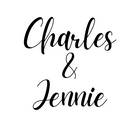Who is a B.V. Islander?
I am introducing a sub- category of Wheatake called"Talking Point" to help clarify B. V. Islander's identity.
I am writing this Wheatake, the results of years of inquires and observations, as a talking point to get a clearer understanding of this subject. I realize that to discuss this subject excites emotions, and may even generate fear and feelings of exclusions. However, the purpose is to clear a pathway to understanding the root and usage of the term "B. V. Islander."
Several decades ago, when I was Chairman of the B. V. I. Scholarship Committee, the Committee interviewed a male candidate for an award. During the interview he requested to speak about something that was worrying him. He said his father was a B. V. Islander, a member of one of the original families of the B. V. I. and his mother was a national of another eastern caribbean country living and working in the B. V. I. He said he was caught between the two families and he did not know where he belonged. When he was with his father's family they bashed his mother's family and non-B. V. Islanders, and when he was with his mother's family they bashed his father's family and B. V. Islanders. In each case he said he could not join in the discussions because he would be a traitor to the other side.
That was an eye opener for me, and I have spent a significant amount of time reflecting on relationships among national groups from other countries and B. V. Islanders who are descendants of the original families. I found three main groups of people in the B. V. I. Group One is the offsprings and descendants of two B. V. Islanders by heritage, tracing their bloodline as far back as possible to the 5,133 slaves who were freed in 1834 as well as those who were freed by Samuel and Mary Nottingham. Group Two is offsprings of two nationals of other countries and can trace their heritage to their original homeland. Groip Three is offsprings of one B. V. Islander parent who can trace hi/her heritage to the families of the freed slaves and one national of another country whose claim to the B. V. Islands is through legal documents.
Each group has similar and different challenges. Although the groups may relate and communicate, worship and work, re create and procreate, provide for their existence present and future within the culture of the B. V. I., below the surface, that which is visible, there are divisions rooted in a variety anti feelings which surface periodically. Any country that accommodates diverse immigrant groups is faced with divergencies which sometimes influence individual and corporate life adversely.
If you follow bloodline relationships, groups one and three generally speaking, are B. V. Islanders who claim their status through their heritage. Those in group two claim their status through documents. I have found that when nationals through heritage speak or assert claims, nationals through documentation tend to interpret this as discriminations against them. They fire back in various ways and so tensions tend to increase. These relationships send a message that the B. V. Islanders by heritage should be submissive. That struggle, dominant versus submissive is ongoing. Nationals through documents should not try to silence nationals by heritage, as is the case in many confrontations. Nationals by heritage should respect the status of nationals by documentation. Each group has aspirations and once these aspirations are within the boundaries of the laws of the land, each group should work towards developing an inclusive society where everyone can live safely and comfortably.
- Dr. Charles Wheatley

